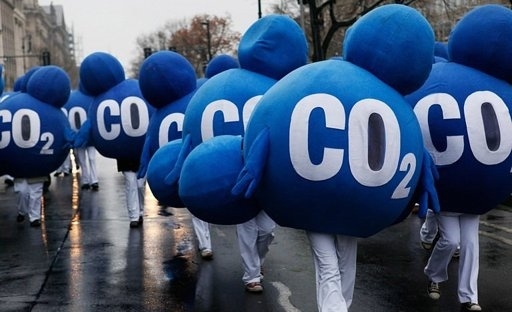Two scientist-activists at the University of Wisconsin–Madison published an article in Science last week calling for more “Climate Change Conversations,” as the article was titled. Speaking on behalf of people skeptical of an asserted global warming crisis, I accept the invitation.
Bassam Shakhashiri, a professor at the ultra-liberal University of Wisconsin-Madison and Distinguished Chair of the “progressive” group the Wisconsin Idea, along with his University of Wisconsin-Madison colleague Jerry Bell, write, “Communicating the science of climate change provides one example where the scientific community must do more. Climate change affects everyone, so everyone should understand why the climate is changing and what it means for them, their children, and generations to follow.”
Let us begin this important conversation now.
In their article, Shakhashiri and Bell claim “the average temperature of the Earth is increasing.” Well, not during the past decade the temperature hasn’t. NASA and NOAA satellite data show the Earth’s temperature has not risen at all for more than a decade. This has occurred even though global carbon dioxide emissions rose by a third during the past 10 years. If carbon dioxide is truly the primary driver of global temperature change, why has there been no warming during the past decade?
Global warming activists will often reply that we should look at the past century rather than the past decade when assessing global temperatures. Fair enough. At least half of the global warming of the 20th century occurred prior to the post-World War II economic boom. Global carbon dioxide emissions were minimal during the pre-World War II era. Again, this argues against carbon dioxide emissions being the primary driver of global temperature, and argues against economically ruinous “progressive” programs to restrict carbon dioxide emissions.
More importantly, we should look at the past several thousand years, rather than merely the past century, when assessing the context of current temperatures. The Earth’s current temperature, when assessed in proper context, is relatively cool right now. Today’s temperatures are cooler than those that prevailed during most of the past 10,000 years, when human civilization first developed and thrived. Temperatures during the past century only seem warm when compared with the Little Ice Age, which brought about the coldest temperatures of the past 10,000 years and ended just over a century ago.
Shakhashir and Bell claim “ice is melting.” If global temperatures finally warm from the extreme cold of the Little Ice Age, we can certainly expect some of the unusually prevalent ice to melt. But is ice melting at an alarming rate? Not according to NASA and NOAA satellite data. In fact, NASA and NOAA satellite instruments show polar sea ice has remained relatively steady since the satellite instruments were launched in 1979, and polar sea ice is currently more extensive than the long-term average.
Shakhashir and Bell claim “oceans are acidifying.” The oceans are alkaline, not acidic. The oceans have a pH of 8.1, which is far above the neutral pH of 7.0. To the extent ocean alkalinity may have declined from 8.2 to 8.1 during the past century, the oceans are becoming less alkaline, not more acidic.
More importantly, marine life – like terrestrial plant life – is benefiting from higher carbon levels. Several peer-reviewed studies document plankton, sea stars, crustaceans and other marine life thrive and grow more rapidly in ocean water with higher carbon content and less alkalinity.
Shakhashir and Bell claim “extreme weather events are more frequent.” If Shakhashir and Bell define “extreme weather events” as a remarkable decline in drought, a remarkable increase in soil moisture, a remarkable decline in strong tornadoes and a remarkable decline in hurricane strikes, they are correct. However, if they define “extreme weather events” the way most other people in the world define the term, they are irrefutably wrong. As temperatures continue to recover from the depths of the Little Ice Age, droughts are less frequent and severe, global soil moisture is improving, strong tornadoes are in long-term decline, and hurricane strikes are becoming less frequent.
Shakhashiri and Bell assert we should have more climate change conversations. I agree, especially considering the scientific evidence debunks global warming alarmism. Messieurs Shakhashiri and Bell, you name the time, place and venue, and I will be happy to oblige you in considering this climate change conversation.
[First Published at Forbes]





